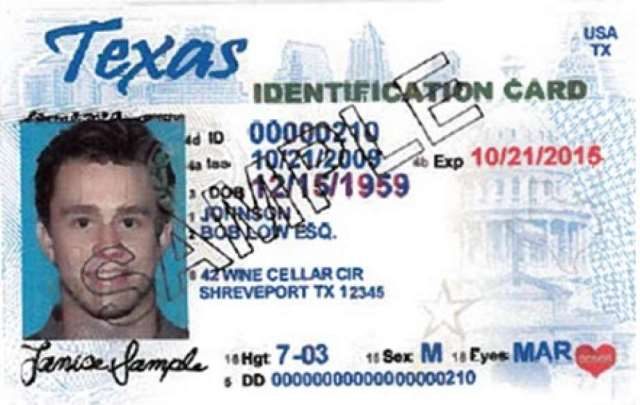A decision from a federal appeals court — to likely be made this week — is expected to determine whether the Texas photo voter identification requirement will be enforced for the 2016 Election.
The full Fifth Circuit Court of Appeals’ decision to either allow or end enforcement of the law originally beginning in 2013 could impact Texas voters in November, due to the timing of the matter. Texas’ law has survived a previous injunction leveled against it due to court rulings that were made too close before ballots are cast. Commonly referred to as the Purcell Principle in legal circles, a court-ordered departure from the status quo shortly before an election is seen as a hardship on voters and officials alike, therefore keeping the challenged policy in place for one more contest. Should the Fifth Circuit rule this week, their decision will likely be immediately binding.
The Bexar County Elections Administrator feels that regardless of the ultimate decision, a July ruling is much preferred to a September one.
“We’re really, really thrilled that [the 5th Circuit is] going to make a decision early,” Jacquelyn Callanen told Breitbart Texas Thursday. The county official stressed that they were “anxiously” awaiting the ruling.
Callanen noted that a decision to continue the enforcement of voter ID would not place a major burden on her office to prepare for the general election: “If it stays, we have all the materials … no scurrying required.”
Much of Bexar County and others’ preparations would involve the reprinting and distribution of ballots, signage, forms, training materials and more in English and Spanish. Current U.S. Department of Justice enforcement of Section 208 of the Voting Rights Act requires that Bexar service Spanish speakers just as they would in English. In contrast, Harris County would need to reproduce ballots and other documents in Spanish, Mandarin and Vietnamese.
A decision to strike down the law would place a considerable administrative burden on Bexar County.
“If rescinded, that would put us on the fast track to prepare older forms and materials” necessary in time for early voting later in the fall, according to Callanen.
Shortly after the U.S. Supreme Court struck down a portion of the Voting Rights Act (VRA) that kept Texas and more than a dozen other states and jurisdictions under the thumb of the DOJ — with administrative veto power over any new election law — voter ID became enforceable in time for the 2013 constitutional election. A coalition of left-leaning groups to include the NAACP and Fort Worth area Congressman Marc Veasey (D) brought a lawsuit challenging the law as violating the 14th and 15th Amendments and the VRA’s ban on poll taxes. Obama-appointed Judge Nelva Gonzales Ramos ruled in October 2014 that the law was intentionally enacted to discriminate against minorities and could impact more than 600,000 Texans in the process.
Upon initial appeal, a three-judge panel of the Fifth Circuit reversed Gonzales’ ruling in part in 2015 noting that the law was not clearly passed with discriminatory intent, but could harm minorities all the same. In May 2016, the full Circuit held a second hearing on the matter, leaving The Washington Post with the impression that “there did not seem to be much support for striking down the law or blocking its use in November’s presidential election.” The paper noted that Texas Solicitor General Scott A. Keller rejected any notions that the law could be blamed for reduced turnout in any of the three statewide contests held since enactment.
Bexar County told Breitbart Texas that the now 1 million-plus registered voter jurisdiction has not seen widespread challenges due to the law.
“We were envisioning hundreds of provisional [ballots cast because of the requirement] – it has not been an issue here,” Callanen explained. The county official recalled that single-digit amounts of provisional ballots had been caused due to voter ID in past elections. Callanen argues that her office’s “proactive” approach to combining free voter ID assistance opportunities in tandem with early voting locations helped many in need.
An emergency appeal to the Supreme Court for the losing party will likely prove a risky play due the probability of a 4-4 deadlock, reverting to the previous ruling. The U.S. Supreme Court held in 2008 that voter ID laws support a recognized state interest in protecting against voter fraud before a significant amount occurs.
Logan Churchwell is the Assistant Editor and a founding member of the Breitbart Texas team. You can follow him on Twitter @LCChurchwell.
Editor’s note: Logan Churchwell serves as the Communications Director for Houston-based True the Vote – a nonprofit that attempted to intervene in defense of the voter ID law in 2013.

COMMENTS
Please let us know if you're having issues with commenting.